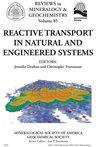高亲铁元素的分析方法
1区 地球科学
Q1 Earth and Planetary Sciences
引用次数: 34
摘要
高亲铁元素(HSE)包括第五代过渡金属钌(Ru)、铑(Rh)、钯(Pd)和第六代过渡金属铼(Re)、锇(Os)、铱(Ir)、铂(Pt)和金(Au)。除了亲铁之外,这些元素还具有抗氧化性,熔点高,是重要的工业催化剂。地质物质中的HSE丰度变化很大,从矿石中的~ 1mg /g到玄武岩中的几pg/g不等(表1)。这些元素包括两种长寿命的放射性衰变方案:187Re衰变到187Os, 190Pt衰变到186Os。表1选定岩石类型和模型上地幔中HSE丰度范围,单位为ng/g。HSE旨在解决各种各样的地球化学和宇宙化学问题。早期的研究表明,HSE浓度可以限制冥古宙地幔演化(Chou 1978),并显示了Re/Os同位素系统的地质年代学潜力(Herr和Merz 1955;Herr et al. 1961;Markey et al. 1998)。最近的应用将Re-Os衰变系统与HSE的丰富数据相结合,以研究行星和月球的演化(Day等人,2010年,2016年,本卷),地幔(Rehkamper等人,1997年;Aulbach et al. 2016,本卷;Harvey et al. 2016,本卷;Luguet and Reisberg 2016,本卷),撞击坑(Koeberl and Shirey 1993),成矿的地球化学和地质年代学(Markey et al. 1998;Barnes and Ripley 2016,本卷),tektites (Koeberl and Shirey 1993),以及大陆地壳的形成和演化(例如,Peucker-Ehrenbrink and Jahn 2001)。Re, Os, Ru, Pt和Pd的非质量依赖同位素变化也存在于一些陨石和月球样品中,这是由核合成和宇宙辐射引起的(Yokoyama和…本文章由计算机程序翻译,如有差异,请以英文原文为准。
Analytical Methods for the Highly Siderophile Elements
The highly siderophile elements (HSE) include the fifth-period transition metals ruthenium (Ru), rhodium (Rh), palladium (Pd), and the sixth-period transition metals rhenium (Re), osmium (Os), iridium (Ir), platinum (Pt) and gold (Au). In addition to being iron-loving, these elements are also resistant to oxidation, have high melting temperatures and are important as industrial catalysts. HSE abundances in geologic materials vary significantly, ranging from ~1 mg/g in ore materials down to a few pg/g in basalts (Table 1). These elements comprise two long-lived radiometric decay schemes: 187Re decays to 187Os, and 190Pt decays to 186Os. View this table: Table 1 Range of HSE abundances, in ng/g, in selected rock types and in model upper mantle. The HSE have been targeted to address a wide variety of geochemical and cosmochemical questions. Early work suggested HSE concentrations can constrain Hadean mantle evolution (Chou 1978) and showed the geochronologic potential of the Re/Os isotope system (Herr and Merz 1955; Herr et al. 1961; Markey et al. 1998). More recent applications combine the Re–Os decay system with abundance data for the HSE to investigate the evolution of the planets and the moon (Day et al. 2010, 2016, this volume), the terrestrial mantle (Rehkamper et al. 1997; Aulbach et al. 2016, this volume; Harvey et al. 2016, this volume; Luguet and Reisberg 2016, this volume), impact craters (Koeberl and Shirey 1993), geochemistry and geochronology of ore formation (Markey et al. 1998; Barnes and Ripley 2016, this volume), tektites (Koeberl and Shirey 1993), as well as the formation and evolution of the continental curst (e.g., Peucker-Ehrenbrink and Jahn 2001). Non-mass dependent isotope variations in Re, Os, Ru, Pt and Pd are also present in some meteorites and lunar samples and arise from nucleosynthesis and cosmogenic radiation (Yokoyama and …
求助全文
通过发布文献求助,成功后即可免费获取论文全文。
去求助
来源期刊

Reviews in Mineralogy & Geochemistry
地学-地球化学与地球物理
CiteScore
8.30
自引率
0.00%
发文量
39
期刊介绍:
RiMG is a series of multi-authored, soft-bound volumes containing concise reviews of the literature and advances in theoretical and/or applied mineralogy, crystallography, petrology, and geochemistry. The content of each volume consists of fully developed text which can be used for self-study, research, or as a text-book for graduate-level courses. RiMG volumes are typically produced in conjunction with a short course but can also be published without a short course. The series is jointly published by the Mineralogical Society of America (MSA) and the Geochemical Society.
 求助内容:
求助内容: 应助结果提醒方式:
应助结果提醒方式:


